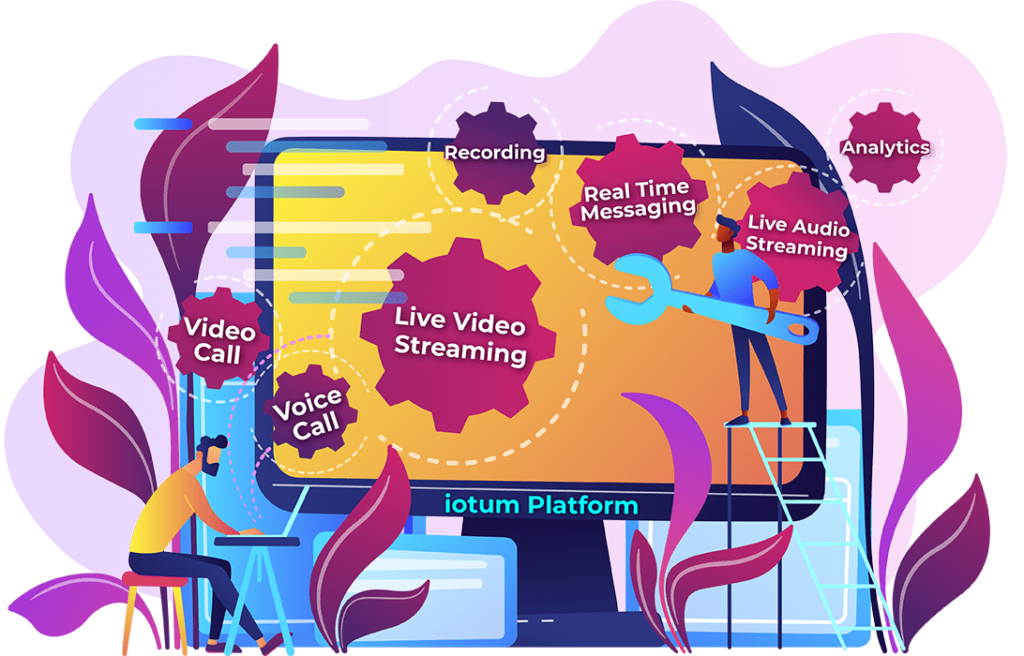 Remote work takes on many shapes and forms including the idyllic “digital nomad” pictures of
Remote work takes on many shapes and forms including the idyllic “digital nomad” pictures of
laptops-on-beaches flooding Instagram. Sure, that’s an aspect, but if you’re looking for other options, then this post is for you.
Remote work could look like working from home as a new parent, only working from the office 4 days a month. Perhaps it’s a stint spent working outside of the country for a season.
Maybe it’s sorting a 4-day-a-week solution because the commute is draining or maybe you want to work overseas (without moving from your hometown) because there are better opportunities and higher wages within a remote company.
It could be as simple as wanting a staycation working from home to be closer to your kids or a working holiday spent at the cottage!
Whichever way you paint the picture of remote work in your head, it’s possible now more than ever to make it happen! Whether you’re still on the fence, nervous to take the leap or you’ve made up your mind but it’s your boss you’ve got to convince, read on for some insight.
Why Do You Want to Work Remotely?
Whether you’re job searching or in your current role with a remote work strategy in mind, the question you’ll be hit with is, “Why do you want to work remotely?” Your boss will probably ask you. Human Resources might ask you in an interview, or maybe it’s a question you’re asking yourself!
Let’s Start With Facts:
The incredible boom of automated technology that continues to only improve and offer more and more flexibility has been a key factor in the shift to remote work. More people, both long standing employees and Tim Ferris’ “New Rich” are seeing the advantages of making any space their office – as long as there’s wifi!
While the facts underpinning just how much remote work can improve your life are plenty, there are a few that stick out:
Fact #1 – Productivity Skyrockets
Consider how remote workers have a reputation for getting more work done. Yep, employers have seen an increase in productivity in how workers get their job done more efficiently. This switch seems to create less stress which leads to a better work/life balance for workers which in turn brings down absenteeism, wasted office hours and turnover costs. People work better when they get to choose their work environment.
In a survey conducted in San Francisco, of the 39% who choose to do their job out of the office, 77% agree that they are able to be more productive at home with 30% going so far as to say they are able to get more done in less time. It gets better. 23% are willing to put in more hours and 52% are perfectly happy taking less time off when working from home even if they are feeling under the weather.
Fact #2 – Healthier and Happier
Hiring the best talent means employers expect top-notch performance. In order to get and retain that high-level performance, typically, workers are a product of their working environment. Remote work can truly impact the space in which employees work.
According to an online quiz, “Is Your Personality Suited To Working Remotely Or In The Office?” of the 3,400+ workers in a firm, there was only 24% of office workers who said they love their job; while 38% of mobile workers and a staggering 45% of telecommuting workers said they love their jobs.
Not sure if you think you’re suited to the working-from-home lifestyle?
Take the same quiz.
The well-being of workers is positively impacted when they have a choice to work from home or at an office. Stress decreases, time is effectively used, costs are cut and overall health generally goes up.
Working parents, this is an opportunity to reduce work-related stress. By creating a more flexible schedule using remote work strategies – flex hours, a remote day per week, a remote week per month, etc.– parents can spend more time with kids without sacrificing the quality of their work.
Fact #3 – Reduces Cost
Get this – according to Forbes, in some of the biggest business meccas in the world, on the low end, it can cost $100 per square foot for office space downtown. In Hong Kong’s central district that’s a whopping $302.51 per sq.ft. compared to London’s West End at $213.85.
Not only does remote work cut travel costs for employees (bus, car, gas, etc.), employers get the biggest piece of the pie. With more employees wanting to work remotely, office space can be downsized which slashes the cost of rent. Plus, there’s less need for furniture, office supplies, lower bills, etc.
Even large companies with over 1,000 employees are making the shift. When AT&T created a telework program, the mega-corporation saved $30 million a year in real estate.
 Plus, An Added Bonus:
Plus, An Added Bonus:
When team members have the option of working from home, not only are productivity, health and costs affected. There are positive environmental factors at play too:
3. With 5.2 million Americans teleworking, that’s 10 million barrels of oil saved every year, which means way less greenhouse gases. Less commuting means there are fewer cars on the road because remote workers can set up shop from home, walk to a coffee shop or find a coworking space that’s a closer commute.
2. Whether you live in a hot or cold climate, every office requires heating, cooling, and electricity. Less energy is consumed working from home where you can be more in control and aware of the temperature.
1. From printer paper and ink to ordering lunch in plastic containers with cutlery, office waste eats up physical resources. Out of office jobs rely more on email and digital tools like video conferencing, sending files, recording and taking notes rather than using office supplies like printing.
Back to the question, “Why Do You Want to Work Remotely?”
If you’re pitching the idea to your boss, getting prepared for a remote job interview or if you want to consider if working a home job can affect your work/life balance:
What does your unique remote work plan look like?
By having an idea of how your remote working situation will take shape, you come across as prepared and serious about your ask.
Think about the following questions:
- Do you want to stay in the same city?
- Will you be moving around?
- Is this temporary, or recurring?
- Will it be for a few days/weeks/months or indefinite?
- What assurances can you give your employer so they trust your decision?
By taking into consideration the facts paired with your line of thinking, your answer to “Why do you want to work remotely?” can sound like:
“My productivity spikes when I have less distractions.”
“Cutting down my commute affords me more time to balance my work and manage my life.”
“I am excited to work for an inspiring company that sees me for my talent and not my geographical location.”
“Living in a cost-effective location helps me maximize my earnings without giving up where I work.”
Try to avoid mentioning:
- How much you enjoy online meetings wearing your pajama bottoms
- How you can watch your kids while you work
- How you don’t like being micromanaged
- How working out-of-office is easier
How do your strengths and previous experience support your potential out-of-office plan?
Your job has perks other than the fact it is or can be remote. Touch on those points and relate back to how it fits with you or how it excites you. Talk about how you enjoy collaboration; your eagerness to learn how to better use and maximize digital tools; the opportunity to expand your skill set; working with different people around the world, etc.
The “remote-ness” of the position and how it’s less distracting, more productive, cuts your commute time, etc., should come secondary.
Does your remote work strategy reflect the company’s culture?
A high priority for successful companies is establishing and maintaining company culture that resonates within the workplace and is reflected online. Even for remote workers, being friendly and encouraging group cohesion makes work run more smoothly.
If you’re cutting your in-office hours, suggest organizing a luncheon on a day you’re in the office. Or when engaging in an online meeting, set aside a bit of time to play an “ice breaker” game or swap workplace success stories.
Can you bring up how your plan benefits your employer?
Another angle when discussing remote work terms is positioning and presenting it in a way that relates to your employer. What’s in it for them? Maybe it’s your ability to contribute more to the community or cut down on some of their overhead costs.
In short, remote work or working on a remote team:
 enhances productivity
enhances productivity- promotes a happier and healthier lifestyle
- reduces costs for both employer and employee
- is an environmentally friendly option
- and so much more but…
…what ties it all together is how everyone communicates. Being able to perform your normal duties outside of the office is made more convenient with the right technology that works to keep you connected and accessible.
Along with a device like a tablet, smartphone, or laptop, a group communication platform that includes video conferencing and conference calling is an absolute must. Not only will it make your job run more smoothly on your end, but also for your team and employer.
Think about this:
Video conferencing for remote workers empowers how they get their job done.
Collaboration is made simple with online meetings facilitated by 2-way communication that bridges the gap. Of course phone, email and messaging is essential, but since communication is mostly based on visual cues, working outside of the office becomes exponentially easier and more appealing with the use of state-of-the-art technology that gives you the upper hand.
Plus, with features that enhance productivity like:
- Screen sharing
- International dial-in numbers
- Time Zone Scheduling
- Automatic invitations and reminders
- Text Chat
…your job on the go just became less complicated to roll out. Intuitive technology that can be used for online meetings, interviews, webinars and tutorials, remote sales pitches, and more, strengthens a remote employee’s working relationship with their team, boss and work/life balance.
Consider how it’s totally possible for new employees to be onboarded and trained via online webinars. Or how current employees can make the transition from office to online by implementing the appropriate tech and software that accommodates their needs.
Some jobs are a natural fit for remote work, like:
Customer service, customer support, project manager, web development, software engineering, coach, email marketer, promotional video maker, freelance writer, web or graphic designer, translator, customer service management, crowdsourcing manager, android or iPhone developer, e-book publisher, teacher or tutor, and so much more…
But you should also know…
…that most employees can pitch a potential remote work situation in their current role. As technology continues to get more and more sophisticated, different types of professionals who weren’t able to work from home are becoming able to now. Flexibility, income and the ability to move is what’s shifting the workplace to become more online than ever before.
Let FreeConference.com make the shift from office to online as seamless as possible with group communication technology that supports your lifestyle choice. Your work/life balance starts with a platform that amplifies productivity with collaborative features and ease of use.
Zero downloads. Free and paid features. No membership. No long distance fees. Learn more here.


